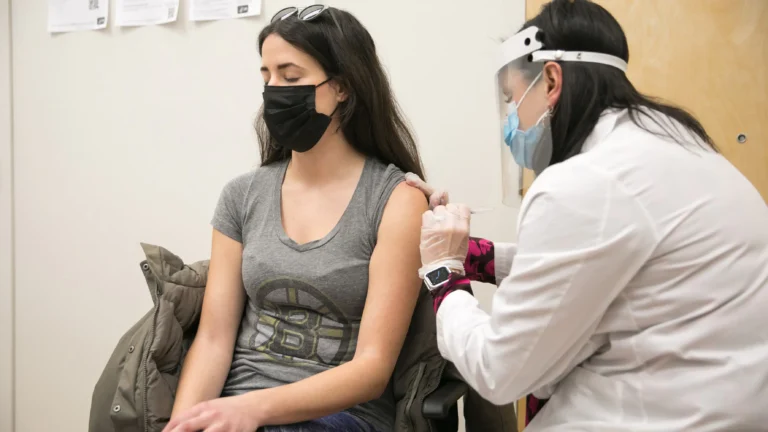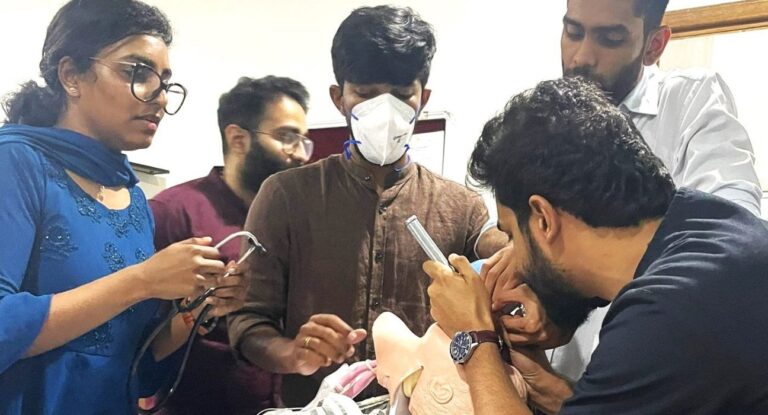The healthcare industry is a dynamic and rapidly growing field that offers a wide range of career opportunities. Whether you’re interested in working directly with patients or prefer a more behind-the-scenes role, there are numerous healthjobs available that cater to a variety of skills and interests. This article will explore the different types of healthjobs, the qualifications required, and the potential benefits of pursuing a career in this vital industry.
Understanding Healthjobs: What Are They?
What Constitutes a Healthjob?
Healthjobs encompass any role within the healthcare sector, including positions that involve direct patient care, such as doctors and nurses, as well as those that support healthcare delivery, like medical coders and healthcare administrators. The term “healthjob” refers to the broad spectrum of careers that contribute to maintaining and improving public health.
The Importance of Healthjobs in Society
Healthcare professionals play a crucial role in ensuring the well-being of individuals and communities. From diagnosing illnesses to providing preventive care, healthjobs are essential for the functioning of any society. This section will delve into the societal impact of healthjobs and why they are critical to our collective health.
Types of Healthjobs: A Comprehensive Overview
Clinical Healthjobs: Direct Patient Care
Clinical healthjobs are those that involve direct interaction with patients. These roles are critical in diagnosing, treating, and managing health conditions. Here are some examples:
- Doctors and Physicians: The backbone of any healthcare system, doctors diagnose and treat illnesses. They can specialize in various fields, such as cardiology, neurology, or general practice.
- Nurses: Nurses provide essential care to patients, including administering medication, monitoring vital signs, and offering emotional support. They work in hospitals, clinics, and even in patients’ homes.
- Surgeons: Surgeons perform operations to treat injuries, diseases, and deformities. Their work is highly specialized and requires years of training.
- Dentists: Dentists focus on oral health, diagnosing and treating issues related to teeth and gums. They perform procedures like fillings, extractions, and oral surgeries.
Allied Healthjobs: Supporting Clinical Care
Allied healthjobs support the work of doctors and nurses by providing specialized services that are essential to patient care. Some examples include:
- Radiologic Technologists: These professionals perform diagnostic imaging examinations, such as X-rays and MRIs, to help diagnose health conditions.
- Physical Therapists: Physical therapists help patients recover from injuries and surgeries by developing personalized rehabilitation plans.
- Occupational Therapists: Occupational therapists assist patients in regaining skills necessary for daily living and working, particularly after an injury or illness.
- Pharmacists: Pharmacists dispense medications prescribed by doctors and provide information on their proper use.
Non-Clinical Healthjobs: Behind-the-Scenes Roles
Non-clinical healthjobs do not involve direct patient care but are equally important in ensuring the smooth operation of healthcare facilities. These roles include:
- Healthcare Administrators: Healthcare administrators manage the day-to-day operations of healthcare facilities, including hospitals, clinics, and nursing homes. They ensure that the facility runs efficiently and complies with regulations.
- Medical Coders and Billers: Medical coders translate healthcare services into standardized codes for billing and record-keeping purposes. Billers then use these codes to process insurance claims.
- Health Information Technicians: These professionals manage patient records, ensuring that they are accurate, accessible, and secure.
- Public Health Workers: Public health workers focus on the broader aspects of health, including disease prevention, health education, and policy development.
Qualifications and Education for Healthjobs
Educational Pathways to Healthjobs
The educational requirements for healthjobs vary widely depending on the role. Some positions, like nurses and doctors, require years of formal education and training, while others, such as medical coders, may only require a certificate or associate degree. This section will outline the different educational pathways for various healthjobs.
- Medical School: Becoming a doctor or surgeon requires completing medical school, followed by residency training. This process can take anywhere from 7 to 12 years, depending on the specialty.
- Nursing Programs: Nursing programs range from associate degrees to bachelor’s and even master’s degrees. Advanced practice nurses, such as nurse practitioners, typically hold a master’s degree.
- Allied Health Education: Many allied health professions require a bachelor’s degree, though some, like radiologic technologists, may require only an associate degree.
- Certification Programs: Some healthjobs, like medical coders, require certification rather than a degree. These programs are often shorter and can be completed in less than a year.
Continuing Education and Professional Development
Healthcare is a constantly evolving field, and professionals in healthjobs must stay current with the latest developments. Continuing education is often required for licensure and certification renewal. This section will discuss the importance of ongoing education and how it benefits both professionals and patients.
Benefits of Pursuing a Healthjob
Job Security and Demand
One of the most significant benefits of pursuing a healthjob is job security. The demand for healthcare professionals is consistently high, and the Bureau of Labor Statistics projects continued growth in the healthcare sector. This section will explore the factors driving this demand and why healthjobs offer long-term career stability.
- Aging Population: As the population ages, the need for healthcare services increases, leading to more job opportunities in the healthcare sector.
- Technological Advancements: Advances in medical technology have created new healthjobs and increased the demand for skilled professionals to operate and maintain this equipment.
Competitive Salaries and Benefits
Healthjobs often come with competitive salaries and comprehensive benefits packages, including health insurance, retirement plans, and paid time off. In this section, we’ll examine the earning potential of various healthjobs and the additional benefits that make these careers attractive.
Opportunities for Advancement
Healthcare offers numerous opportunities for career advancement. Whether through additional education, certifications, or on-the-job experience, professionals in healthjobs can progress to higher-paying and more specialized roles. This section will discuss the different pathways for advancement in the healthcare industry.
Personal Fulfillment and Impact
Working in healthcare provides the opportunity to make a meaningful impact on people’s lives. Whether you’re helping a patient recover from surgery or ensuring the smooth operation of a hospital, healthjobs offer a sense of fulfillment that is hard to match in other industries. This section will explore the personal and emotional rewards of working in healthcare.
Challenges of Healthjobs: What to Consider
High-Stress Environments
While healthjobs are rewarding, they can also be stressful. Healthcare professionals often work long hours, face high-pressure situations, and deal with emotionally taxing scenarios. This section will discuss the challenges of working in healthcare and how professionals can manage stress and avoid burnout.
- Emergency Situations: Professionals in healthjobs often deal with life-and-death situations, which can be highly stressful.
- Long Hours: Many healthcare jobs require long shifts, including nights, weekends, and holidays, which can impact work-life balance.
- Emotional Toll: Dealing with sick and injured patients can be emotionally draining, and healthcare workers must find ways to cope with these challenges.
Physical Demands
Some healthjobs are physically demanding, requiring long periods of standing, lifting patients, or performing repetitive tasks. This section will explore the physical challenges associated with various healthjobs and how professionals can maintain their health and well-being.
The Importance of Work-Life Balance
Achieving a healthy work-life balance can be challenging in the healthcare industry, but it is essential for long-term success and well-being. This section will offer tips and strategies for healthcare professionals to manage their time effectively and prioritize self-care.
Future Trends in Healthjobs
The Rise of Telehealth
Telehealth has become increasingly popular, particularly in the wake of the COVID-19 pandemic. This section will explore how telehealth is transforming healthjobs and the new opportunities it presents for healthcare professionals.
- Remote Consultations: Telehealth allows healthcare providers to conduct consultations remotely, increasing access to care for patients in rural or underserved areas.
- New Roles: The growth of telehealth has created new healthjobs, such as telehealth coordinators and remote patient monitoring specialists.
The Impact of Artificial Intelligence and Automation
Artificial intelligence (AI) and automation are poised to revolutionize the healthcare industry. This section will examine how these technologies are affecting healthjobs and what professionals need to know to stay competitive in this changing landscape.
- AI in Diagnostics: AI is increasingly being used to assist in diagnosing medical conditions, which could change the role of healthcare professionals.
- Automation in Healthcare: Automation is streamlining administrative tasks, allowing healthcare workers to focus more on patient care.
The Growing Importance of Mental Health
Mental health is becoming an increasingly important focus in healthcare, leading to more job opportunities in this area. This section will discuss the rising demand for mental health professionals and how healthjobs in this field are evolving.
- Mental Health Awareness: Increased awareness of mental health issues has led to greater demand for psychologists, counselors, and social workers.
- Integration with Primary Care: Mental health services are increasingly being integrated with primary care, creating new opportunities for collaboration among healthcare professionals.
How to Get Started in Healthjobs
Identifying Your Interests and Skills
The first step in pursuing a healthjob is identifying your interests and skills. This section will offer guidance on how to assess your strengths and match them with the right healthcare career.
- Clinical vs. Non-Clinical Roles: Determine whether you’re more interested in direct patient care or supporting roles.
- Education and Training Requirements: Consider the education and training required for different healthjobs and how they align with your career goals.
Exploring Educational Programs and Certifications
Once you’ve identified your desired healthjob, the next step is to explore educational programs and certifications. This section will provide resources for finding accredited programs and tips for navigating the application process.
Networking and Gaining Experience
Networking and gaining experience are crucial for breaking into the healthcare industry. This section will offer advice on how to build a professional network, find internships, and gain the experience needed to land your first healthjob.
Applying for Healthjobs: Tips and Strategies
Finally, this section will provide practical tips for applying for healthjobs, including how to write a compelling resume, prepare for interviews, and navigate the job search process.
Conclusion
Healthjobs offer a wide range of career opportunities for those interested in making a difference in the healthcare industry. Whether you’re drawn to clinical roles that involve direct patient care or non-clinical positions that support the healthcare system, there’s a healthjob that suits your skills and interests. With the demand for healthcare professionals on the rise, pursuing a career in this field offers job security, competitive salaries, and the chance to make a meaningful impact on people’s lives. By understanding the different types of healthjobs, the qualifications required, and the benefits and challenges of working in healthcare, you can take the first step toward a fulfilling and rewarding career in this essential industry.













